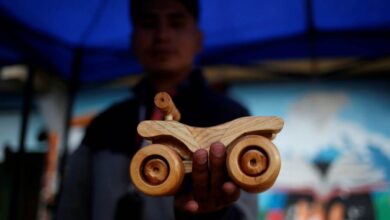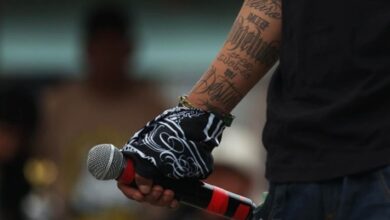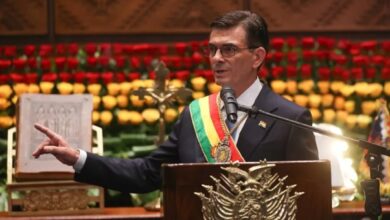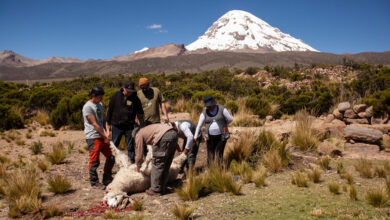Bolivia’s Coca Heartland Becomes a Fortress as Morales Defies Capture
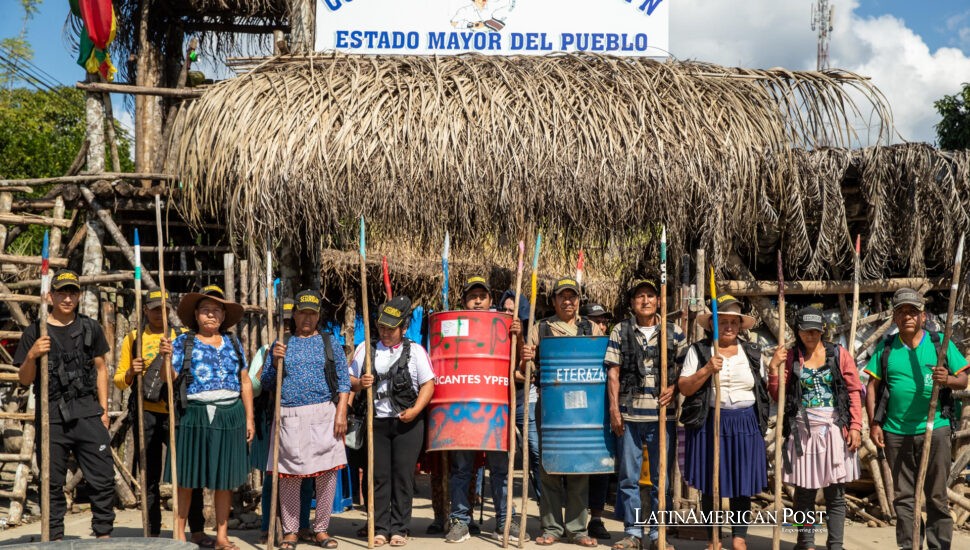
Deep in the coca fields of central Bolivia, Evo Morales has turned his village into a spear-ringed fortress. Declared ineligible to run for president, charged with trafficking, and abandoned by the state, he’s preparing for a political comeback—or a siege.
From Palace to Palisade
Evo Morales used to rule Bolivia from a marble tower in La Paz. Today, he doesn’t leave a remote village in the coca-rich Trópico de Cochabamba, where supporters have encircled his house with sharpened stakes and bamboo guard posts.
This is Lauca Ñ, now dubbed the “General Headquarters of the People” by loyalists who refuse to accept Morales’s disqualification from the 2025 presidential race. After prosecutors issued a warrant accusing him of aggravated human trafficking and the Constitutional Tribunal reaffirmed term limits, Morales dug in.
At the gates, men with lances and walkie-talkies check IDs. Inside, Morales holds court at Radio Kawsachun Coca, the station that amplifies his voice across the coca-growing valleys. “There’s no victim, no crime,” he told EFE in a recent interview, dismissing the legal charges as an attempt to bury his political career.
Union leader Maicol Rojas, guarding the outer checkpoint, waved his two-meter spear as a symbol, not a threat. “This is our ancestral defense,” he said. Anthropologists agree—coca federations have long drawn on Indigenous traditions of communal resistance. But never on this scale, and never in defiance of the same government Morales once led.
A Region Without a Government
The state has all but vanished from the surrounding countryside. Police posts were abandoned in January after roadblocks turned deadly, leaving four officers and two civilians dead. The Interior Ministry blames Morales for inciting the unrest and has charged him with terrorism and election interference.
Morales calls the deaths a “montage” and accuses the government of ignoring Indigenous casualties. But one thing is clear: the vacuum is absolute. The state-run Banco Unión has shuttered nearby branches. The few uniformed patrols that used to cruise the highways have disappeared.
Jorge Derpic, a Bolivian political scientist at the University of Georgia, says this moment echoes the early 2000s. Back then, anti-eradication clashes created de facto autonomous zones controlled by coca unions. “What’s changed,” Derpic notes, “is that Morales isn’t just a rebel leader anymore. He’s the ex-president. And the territory he once governed is slipping out of the state’s hands.”
Here in the Trópico, Morales isn’t a fugitive—he’s still El Jefe. And until someone removes him, the laws of La Paz stop at the riverbanks.
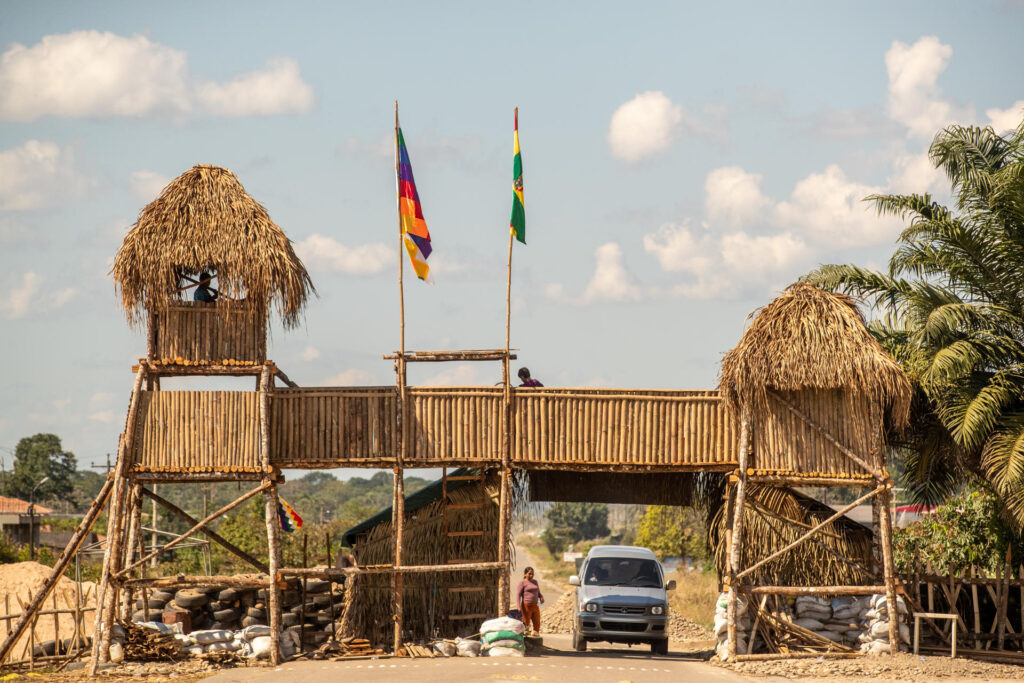
The Courts Say No. His Base Says Yes.
In December 2024, Bolivia’s highest court ruled that Morales cannot run for president again. The decision cited an international court ruling that indefinite re-election is not a human right—a direct rebuttal to Morales’s past arguments.
His legal team says the 2009 constitution should reset the term count. But legal scholars like Paola Hickmann at the Pontifical Catholic University of Chile point out that similar claims failed in Nicaragua and Costa Rica.
None of that matters in Lauca Ñ.
The Seis Federaciones, the powerful coca unions Morales led before entering national politics, are on permanent watch. They ran the roadblocks in January. Now, they guard his compound. Inside, visitors pass through three ID checkpoints before reaching the studio where Morales records his broadcasts.
The space is more shrine than office: a football trophy on one shelf, a life-sized portrait of Morales shaking hands with Chávez and Castro on another. The world may have moved on from the early 2000s Latin left. Morales’s inner circle has not.
Their logic is simple: the law in La Paz may say no, but the people here say yes. And in the coca-growing valleys, that’s the only vote that counts.
MAS in Civil War
The larger crisis is not just legal—it’s personal.
Morales groomed Luis Arce, Bolivia’s current president, and handpicked him to lead the Movement for Socialism (MAS) ticket after Morales was ousted in 2019. But since Arce took office, their alliance has cracked wide open.
The split started over cabinet appointments. Then it deepened as Morales tried to regain control of party organs. Today, each man accuses the other of betrayal. Arce claims Morales is trying to hijack MAS. Morales accuses Arce of plotting to destroy him—”politically and maybe physically.”
Analysts at FLACSO (the Latin American Faculty of Social Sciences) say this is classic political fragmentation in personalist movements. When a founding figure loses formal power but retains grassroots support, a split becomes inevitable.
Now the feud is affecting security itself. Arce’s government calls Morales’s stronghold a “zone of sedition.” Morales calls the lack of police an admission of fear. “The people,” he says, “have reclaimed their sovereignty.”
Whether the state will try to retake Lauca Ñ is anyone’s guess. A raid could spark uprisings across the coca belt. For now, the government is holding its breath—and its distance.
Outside the compound, children play soccer beside men sharpening poles. Inside, Morales plays fútbol every Sunday and tells his followers that “the revolution will return.”
It may sound theatrical, but in this part of Bolivia, it lands. He is not just a former president. He is the man who gave this region clinics, roads, and identity, then lost the presidency in a bitter storm of allegations and exile.
Now he waits behind a wall of lances, daring the state to come for him. Bolivia, meanwhile, watches the impasse with rising tension: a constitutional standoff, a missing security presence, and a party divided by two men who once stood shoulder to shoulder.
What began as a court ruling has become something more dangerous—a battle between legitimacy and legality, between state power and local memory. Whether Bolivia can solve that contradiction without violence is a question no one, not even Morales, can yet answer.
Also Read: “El Ratón” Talks: Will El Chapo’s Son Break the Cartel Code in a Chicago Courtroom?
Credits: Based on EFE field reporting in Lauca Ñ and interviews with Evo Morales, Maicol Rojas, and Jorge Derpic; legal commentary from Paola Hickmann (Pontifical Catholic University of Chile); political analysis from the Latin American Faculty of Social Sciences (FLACSO); historical context drawn from prior conflict mapping in the Trópico de Cochabamba.


